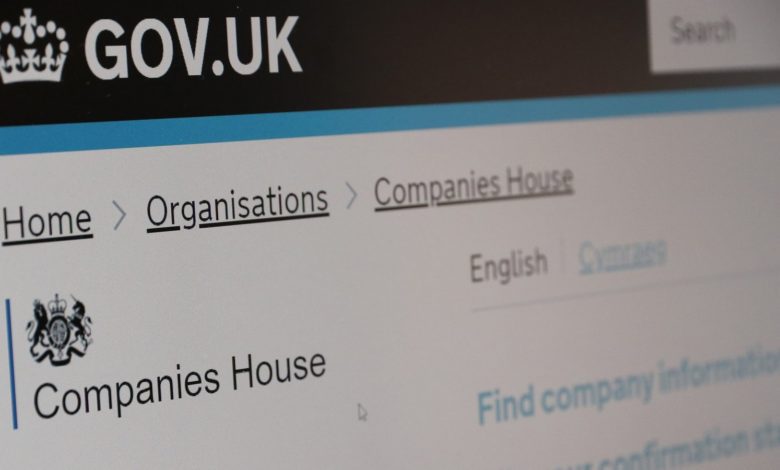Comprehensive Insights into Compulsory Strike Off Procedures
Comprehensive Insights into Compulsory Strike Off Procedures
Blog Article
Complying With Regulatory Responsibilities: Key Factors for Compulsory Strike off Implementation
Navigating the landscape of governing obligations can be a complicated endeavor for services. Making certain compliance with the essential requirements is vital when it comes to the implementation of obligatory strike off procedures - what is compulsory strike off. From meticulous documents techniques to positive communication with governing authorities, there are crucial elements that organizations have to take into consideration to navigate this procedure successfully. By comprehending the nuances of governing compliance and the implications of non-compliance, organizations can protect their procedures and credibility.

Regulatory Conformity Analysis
When conducting a regulatory compliance evaluation, it is imperative to methodically examine and analyze all relevant legislations, guidelines, and standards that concern the details sector or procedure concerned. By thoroughly analyzing the legal framework, companies can make sure that they comprehend their responsibilities and are furnished to maintain the essential criteria established forth by regulative bodies.
Throughout the assessment procedure, it is crucial to identify any kind of voids in between governing demands and present practices. This gap evaluation permits organizations to pinpoint areas of non-compliance and take rehabilitative activities to alleviate risks. compulsory strike off. Carrying out a comprehensive testimonial allows firms to develop internal controls and methods that align with governing expectations.
In addition, a regulative compliance evaluation works as a positive measure to protect against prospective offenses that might cause expensive fines or reputational damage. By remaining abreast of regulatory adjustments and continuously reviewing their compliance condition, businesses can promote a society of adherence to moral standards and lawful needs. Eventually, a comprehensive regulative compliance analysis is foundational in promoting functional integrity and sustainability.
Documents and Record-Keeping
Guaranteeing thorough paperwork and specific record-keeping techniques is a cornerstone of regulative conformity in any kind of industry. Proper paperwork not just help in meeting legal demands however additionally serves as an important tool for interior surveillance and decision-making processes. Organizations must establish robust systems for documenting crucial tasks, purchases, and choices to ensure transparency and accountability.
Preserving precise records is necessary for showing conformity throughout governing audits or examinations. Records needs to be arranged, conveniently obtainable, and preserved for the needed duration based on governing standards. Applying a centralized digital record management system can streamline record-keeping processes, enhance data safety and security, and reduce the risk of information loss or tampering.
Normal audits of documents techniques are critical to recognize spaces or variances that might result in compliance concerns. Educating workers on appropriate record-keeping treatments and information defense actions is additionally essential to promote governing criteria. By prioritizing thorough documents and record-keeping, organizations can proactively reduce conformity dangers and promote a society of liability and stability within the company.
Timely Entry of Information
Proper documents and record-keeping methods lay the structure for regulative compliance; in a similar way, prompt submission of records is vital in demonstrating adherence to developed protocols and meeting reporting obligations. Timely entry of reports ensures that regulative bodies receive current and accurate details about the entity's procedures, financial standing, and compliance with appropriate laws and laws.
Failing to submit records promptly can lead to fines, fines, or various other enforcement activities. It can also elevate uncertainties regarding the entity's total compliance culture and administration practices. To assist in prompt submissions, organizations must establish clear reporting timelines, allot sufficient resources for record prep work, and implement robust interior controls to check due dates and make sure precision.
Additionally, timely entry of records improves transparency and accountability, fostering count on with stakeholders, including investors, regulatory authorities, and the public. It signals a commitment to good administration practices and regulative compliance, which can favorably affect the entity's reputation and integrity in the industry. By focusing on the prompt entry of records, companies show their dedication to operating with stability and based on suitable legislations and guidelines.
Financial Openness and Liability
Showing monetary transparency and responsibility is necessary for cultivating depend on and reputation within a company's stakeholder area. compulsory strike off. By providing clear and accurate economic info, business can showcase their commitment to moral techniques and seem governance. Transparency in economic reporting allows stakeholders to assess the company's efficiency, make informed choices, and hold monitoring liable for their actions
To ensure economic transparency, companies must abide by accounting criteria and guidelines, accurately record economic deals, and disclose details in a timely fashion. Routine Related Site audits by independent 3rd parties can additionally verify the precision and integrity of economic statements. Additionally, applying internal controls and partition of obligations can aid stop scams and errors, boosting general liability.
Reliable interaction of financial information with annual records, investor presentations, and stakeholder conferences is essential for keeping transparency. Firms should involve with stakeholders, address concerns, and respond to questions promptly to develop trust and enhance partnerships. Ultimately, a commitment to economic openness and accountability not only fulfills regulatory requirements however additionally enhances the organization's track record and sustainability.
Communication With Regulatory Authorities

In addition, proactive communication can aid attend to possible compliance issues prior to they rise, thus stopping even more significant regulative concerns in the future. Regular dialogue with regulative authorities additionally permits organizations to stay notified regarding any kind of changes in policies or reporting demands, allowing them to adjust their practices appropriately. By preserving open lines of interaction and without delay addressing any queries or requests from regulative authorities, companies can browse the governing landscape extra effectively and support their commitment to compliance and responsibility.

Final Thought
To conclude, guaranteeing compliance with governing commitments is necessary for the successful implementation of compulsory strike off procedures. By conducting regular analyses, preserving extensive paperwork, sending records quickly, practicing economic openness, and communicating properly with regulative authorities, organizations can minimize the danger of facing get more fines or being struck off. It is critical for entities to maintain their responsibilities and stick to regulative needs to prevent any kind of damaging effects.
Making sure meticulous documents and accurate record-keeping methods is a cornerstone of regulative conformity in any type of sector.Amidst the imperative of maintaining economic transparency and responsibility, reliable communication with regulative authorities stands as a pivotal aspect in promoting organizational compliance and honesty. Timely and transparent communication with governing bodies fosters trust and demonstrates a dedication to governing compliance, which is necessary for the smooth procedure of any organization. Giving precise and full details guarantees that regulative bodies have a thorough understanding of the company's activities and can make informed decisions relating to conformity concerns.
By maintaining open lines of communication and quickly attending to any kind of questions or demands from regulatory authorities, organizations can navigate the regulatory landscape much more successfully and promote their dedication to conformity and accountability.
Report this page